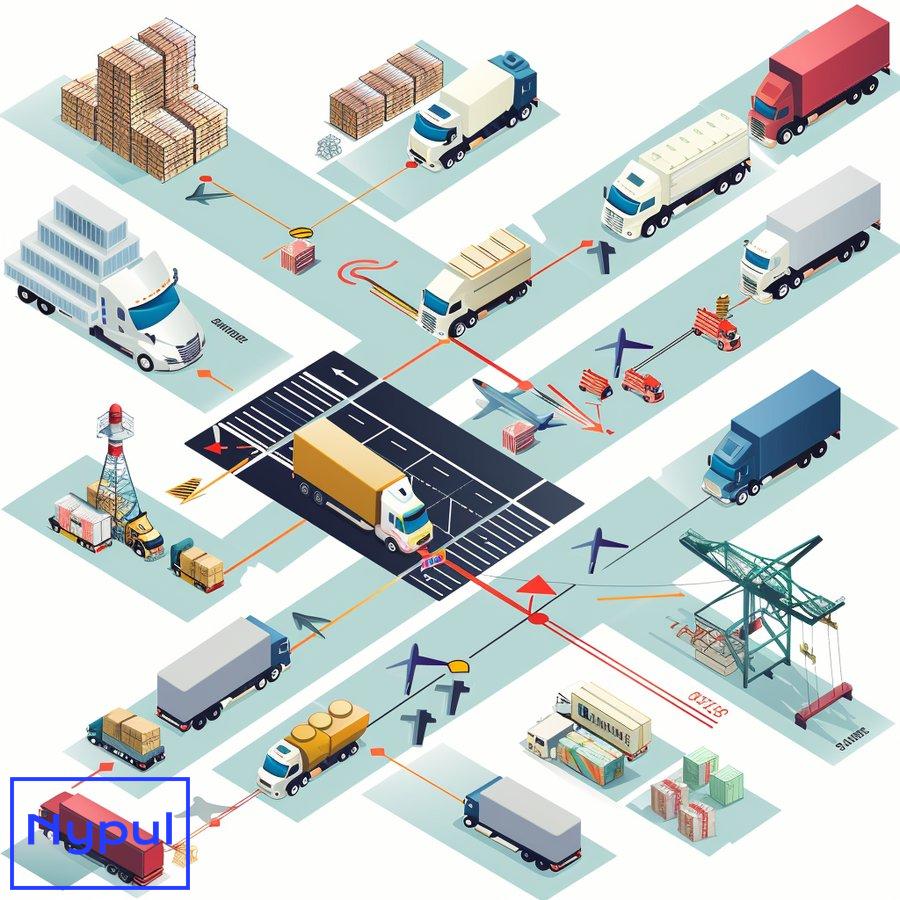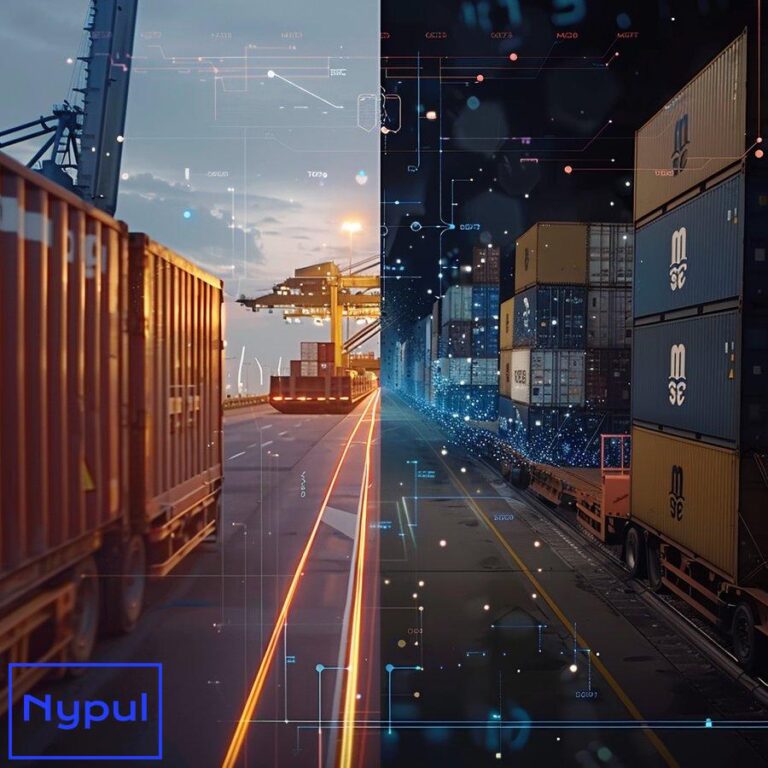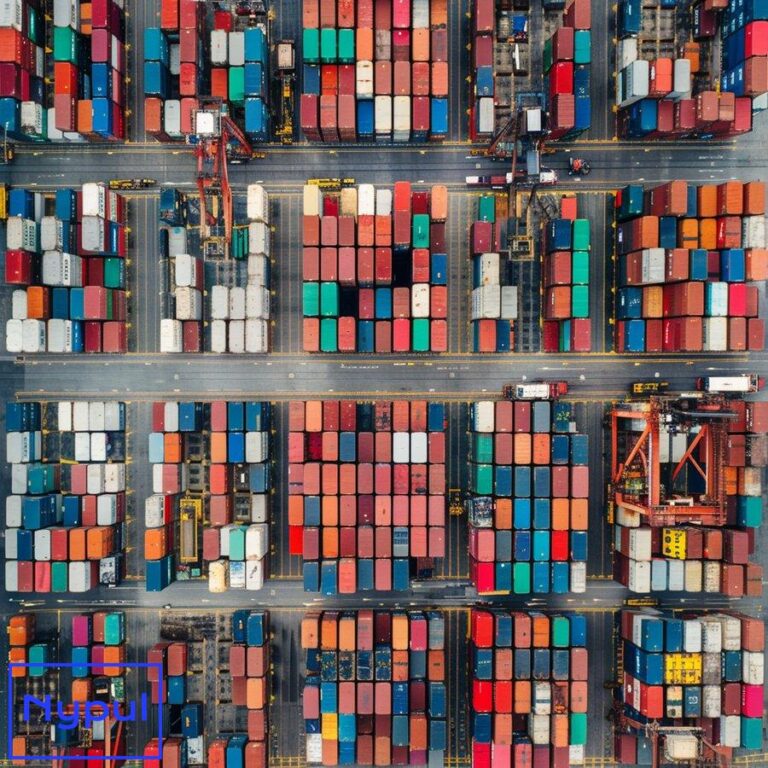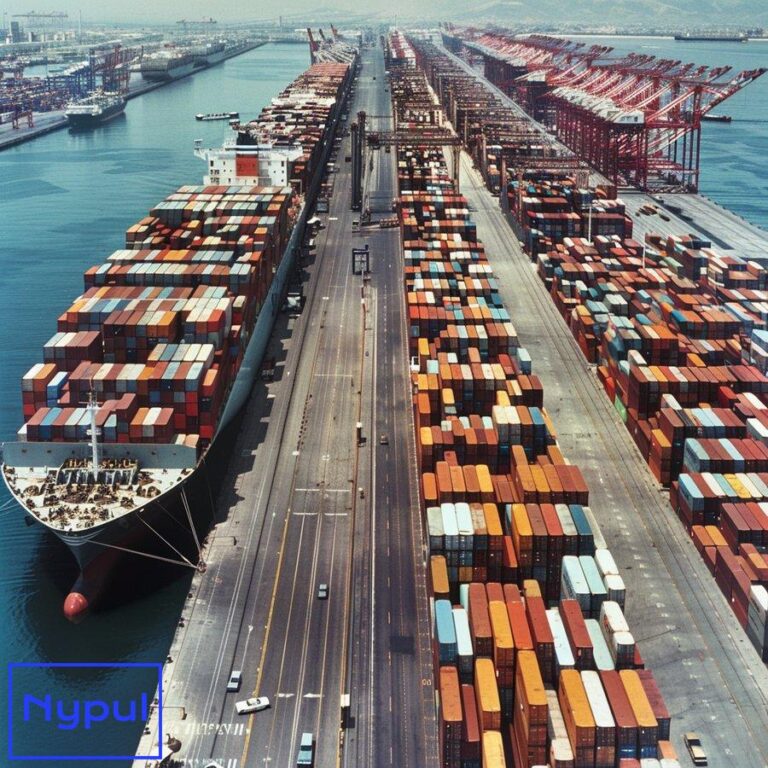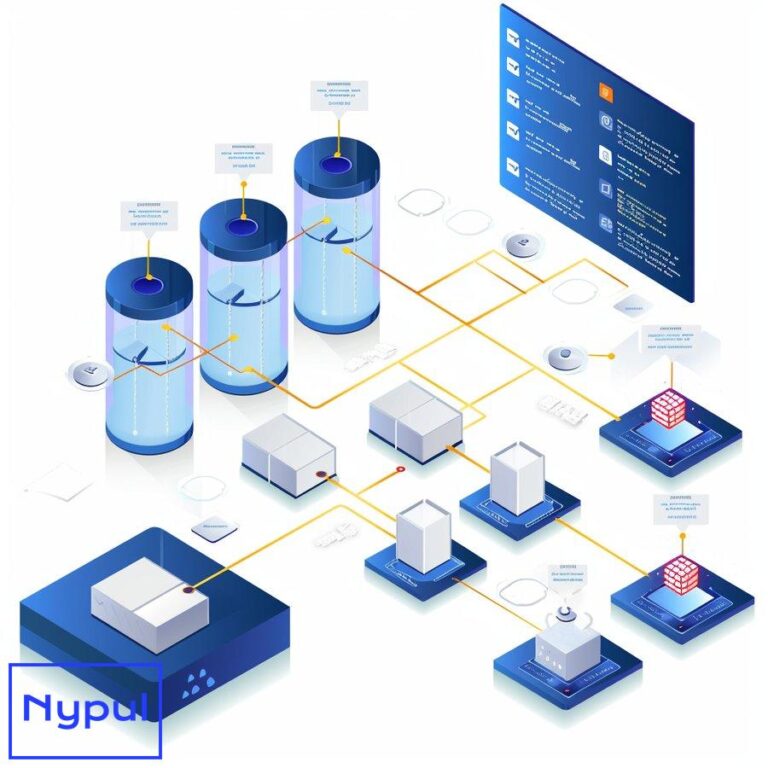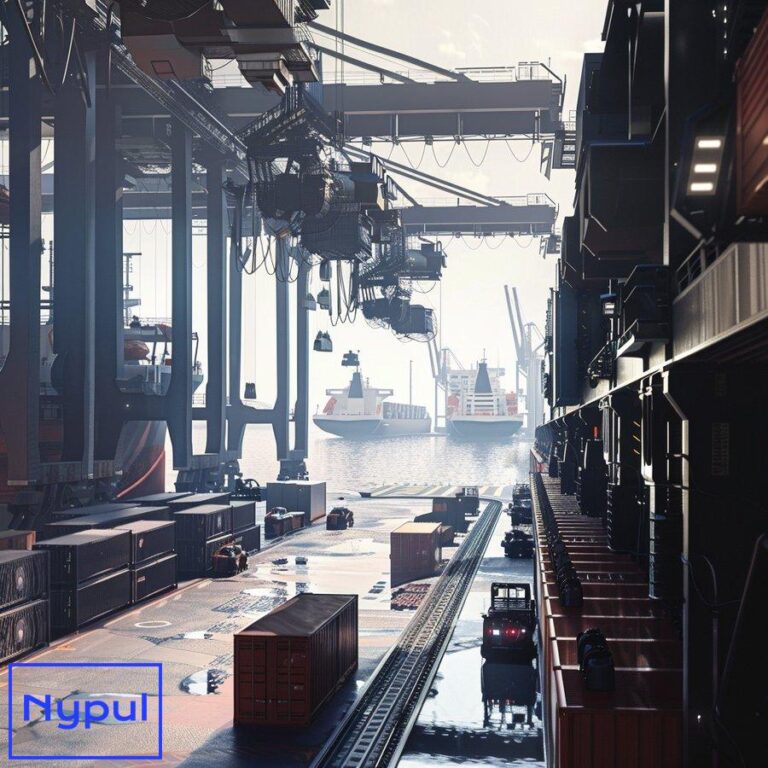What Is the Role of a Drayage Dispatcher
What does a drayage dispatcher do?
Drayage dispatchers play a crucial role in the logistics and transportation industry, serving as the central nervous system of drayage operations. These professionals are responsible for coordinating the movement of containers between ports, rail yards, and local destinations, ensuring that goods are transported efficiently and on time.
The primary responsibilities of a drayage dispatcher include:
Coordinating shipments: Drayage dispatchers manage the flow of containers from their point of origin to their final destination. This involves scheduling pickups and deliveries, assigning drivers to specific routes, and ensuring that all shipments are handled according to customer requirements and industry regulations.
Managing driver fleets: Dispatchers oversee a team of drivers, assigning them to appropriate routes based on their skills, availability, and the specific needs of each shipment. They must balance driver workloads, monitor hours of service compliance, and address any issues that arise during transit.
Route planning and optimization: Using their knowledge of local traffic patterns, port operations, and customer locations, dispatchers create efficient routes that minimize travel time and fuel consumption while maximizing the number of deliveries completed each day.
Real-time problem-solving: When unexpected issues occur, such as traffic delays, equipment breakdowns, or last-minute changes to customer requirements, dispatchers must quickly assess the situation and implement solutions to keep operations running smoothly.
Documentation management: Drayage dispatchers are responsible for ensuring that all necessary paperwork, including bills of lading, customs documents, and delivery receipts, are accurately completed and properly filed.
Communication hub: Acting as a central point of contact, dispatchers facilitate communication between drivers, customers, port authorities, and other stakeholders involved in the drayage process.
Performance monitoring: Dispatchers track key performance indicators (KPIs) such as on-time delivery rates, driver productivity, and fuel efficiency to identify areas for improvement and optimize overall operations.
Compliance oversight: Ensuring that all drayage operations comply with local, state, and federal regulations is a critical aspect of a dispatcher’s role. This includes monitoring driver hours of service, vehicle maintenance schedules, and adherence to environmental regulations.
Technology utilization: Modern drayage dispatchers leverage various software tools and technologies to streamline operations, including transportation management systems (TMS), GPS tracking, and electronic logging devices (ELDs).
Customer service: Dispatchers often serve as the primary point of contact for customers, addressing inquiries, providing updates on shipment status, and resolving any issues that may arise during the transportation process.
The role of a drayage dispatcher is multifaceted and requires a unique blend of skills, including strong organizational abilities, excellent communication skills, and the capacity to make quick decisions under pressure. By effectively managing these diverse responsibilities, drayage dispatchers contribute significantly to the smooth operation of supply chains and the timely delivery of goods to their intended destinations.
How do drayage dispatchers impact supply chain efficiency?
Drayage dispatchers play a pivotal role in enhancing supply chain efficiency, acting as the linchpin between various components of the logistics network. Their impact on supply chain operations is far-reaching and multifaceted, contributing to improved productivity, reduced costs, and enhanced customer satisfaction.
Optimizing container movements

Drayage dispatchers are instrumental in optimizing the movement of containers through ports and intermodal facilities. By carefully planning and coordinating pickups and deliveries, they minimize dwell times and reduce congestion at these critical junctures in the supply chain. This optimization leads to:
- Faster turnaround times for ships and trains
- Reduced demurrage and detention charges
- Improved utilization of port and rail yard capacity
Enhancing transportation efficiency
Through strategic route planning and driver assignment, drayage dispatchers maximize the efficiency of transportation resources. Their efforts result in:
- Reduced empty miles and improved asset utilization
- Lower fuel consumption and associated costs
- Increased number of deliveries per driver per day
Improving inventory management
By ensuring timely and accurate delivery of goods, drayage dispatchers contribute to more effective inventory management practices. This impact is evident in:
- Reduced safety stock requirements
- Lower warehousing costs
- Improved inventory turnover rates
Facilitating just-in-time (JIT) operations
The precision and reliability that skilled drayage dispatchers bring to container movements enable manufacturers and retailers to implement just-in-time inventory strategies. The benefits of this approach include:
- Reduced working capital tied up in inventory
- Lower storage costs
- Increased flexibility to respond to market demands
Enhancing visibility and predictability
Drayage dispatchers provide real-time updates and accurate ETAs, which enhance visibility throughout the supply chain. This improved transparency leads to:
- Better planning and resource allocation for receiving operations
- Reduced labor costs associated with waiting for deliveries
- Improved customer satisfaction through more accurate delivery windows
Mitigating supply chain disruptions
The ability of drayage dispatchers to quickly adapt to changing conditions and solve problems in real-time helps mitigate the impact of supply chain disruptions. Their proactive approach results in:
- Reduced delays due to unforeseen circumstances
- Faster recovery from weather-related or operational disruptions
- Improved overall supply chain resilience
Facilitating compliance and documentation
By ensuring proper documentation and adherence to regulations, drayage dispatchers help prevent costly delays and penalties. This attention to compliance contributes to:
- Smoother customs clearance processes
- Reduced risk of fines or shipment holds
- Improved overall supply chain reliability
Enabling data-driven decision making
The data collected and analyzed by drayage dispatchers provides valuable insights for continuous improvement. This information supports:
- Identification of bottlenecks and inefficiencies in the supply chain
- Data-driven negotiations with carriers and service providers
- Ongoing optimization of routes and processes
Enhancing intermodal connectivity
Drayage dispatchers play a crucial role in seamlessly connecting different modes of transportation, which is essential for efficient intermodal operations. Their coordination efforts result in:
- Reduced transfer times between modes
- Improved synchronization of rail, ocean, and truck schedules
- Enhanced utilization of intermodal equipment
Supporting sustainability initiatives
Through efficient route planning and load optimization, drayage dispatchers contribute to reducing the environmental impact of transportation operations. Their efforts support:
- Lower carbon emissions through reduced fuel consumption
- Improved air quality in port and urban areas
- Alignment with corporate sustainability goals
The impact of drayage dispatchers on supply chain efficiency is significant and multifaceted. By optimizing container movements, enhancing transportation efficiency, and facilitating seamless intermodal operations, these professionals play a crucial role in reducing costs, improving service levels, and increasing the overall competitiveness of the businesses they serve. Their ability to adapt to changing conditions, leverage technology, and make data-driven decisions positions them as key contributors to the ongoing evolution and improvement of global supply chains.
What skills are essential for successful drayage dispatchers?
Successful drayage dispatchers possess a unique blend of technical knowledge, interpersonal skills, and problem-solving abilities. These professionals must navigate complex logistics scenarios while managing relationships with drivers, customers, and other stakeholders. The following skills are essential for excelling in this demanding role:
Organizational prowess

Drayage dispatchers must juggle multiple tasks, schedules, and priorities simultaneously. Strong organizational skills are crucial for:
- Managing multiple shipments and drivers efficiently
- Prioritizing urgent tasks without losing sight of ongoing operations
- Maintaining accurate and up-to-date records of all transactions and communications
Communication excellence
Clear and effective communication is at the heart of a dispatcher’s role. This skill is vital for:
- Providing clear instructions to drivers and other team members
- Coordinating with customers, port authorities, and other external stakeholders
- De-escalating tense situations and resolving conflicts
Technological proficiency
Modern drayage operations rely heavily on various software tools and technologies. Dispatchers must be adept at:
- Using transportation management systems (TMS) for scheduling and tracking
- Leveraging GPS and telematics data for real-time decision making
- Adapting to new technologies as they are introduced in the industry
Problem-solving and decision-making
The ability to think on one’s feet and make quick, informed decisions is crucial. This skill set includes:
- Analyzing complex situations and identifying the best course of action
- Developing creative solutions to unexpected challenges
- Balancing competing priorities to optimize overall operations
Industry knowledge
A deep understanding of the logistics industry and drayage operations is essential. This knowledge encompasses:
- Familiarity with port and rail yard operations
- Understanding of customs procedures and documentation requirements
- Awareness of industry regulations and compliance standards
Time management
Efficient time management is critical in the fast-paced world of drayage. Dispatchers must excel at:
- Prioritizing tasks based on urgency and importance
- Meeting tight deadlines without compromising quality
- Balancing long-term planning with day-to-day operational demands
Attention to detail
The complexities of drayage operations require a meticulous approach. This skill is important for:
- Ensuring accuracy in all documentation and data entry
- Spotting potential issues before they become major problems
- Maintaining compliance with regulatory requirements
Adaptability and flexibility
The dynamic nature of logistics demands that dispatchers be adaptable. This includes:
- Quickly adjusting plans in response to unexpected events
- Embracing new processes and technologies as they are introduced
- Remaining calm and effective under pressure
Customer service orientation
Dispatchers often serve as the face of the company to customers. Strong customer service skills are necessary for:
- Building and maintaining positive relationships with clients
- Addressing customer concerns and complaints effectively
- Proactively communicating updates and potential issues
Analytical thinking
The ability to analyze data and draw meaningful insights is increasingly important. This skill supports:
- Identifying trends and patterns in operational data
- Making data-driven decisions to improve efficiency
- Developing strategies for continuous improvement
Leadership and team management
While not always in a formal leadership role, dispatchers must effectively guide and support their team. This involves:
- Motivating drivers and other team members
- Providing constructive feedback and guidance
- Fostering a positive and collaborative work environment
Negotiation skills
Dispatchers often find themselves in situations requiring negotiation. This skill is useful for:
- Resolving disputes between drivers, customers, or other stakeholders
- Securing favorable rates or terms with service providers
- Balancing the needs of different parties in complex logistics scenarios
Stress management
The high-pressure nature of drayage operations demands excellent stress management skills. This includes:
- Maintaining composure during crisis situations
- Developing healthy coping mechanisms for workplace stress
- Balancing work demands with personal well-being
Continuous learning mindset
The logistics industry is constantly evolving, requiring dispatchers to:
- Stay updated on industry trends and best practices
- Seek out opportunities for professional development
- Adapt to new regulations and compliance requirements
Cultural awareness
In an increasingly globalized industry, cultural awareness is valuable for:
- Communicating effectively with diverse stakeholders
- Navigating international shipping requirements
- Building strong relationships across cultural boundaries
The combination of these skills enables drayage dispatchers to excel in their multifaceted role. While some of these abilities may come naturally, many can be developed and honed through experience, training, and a commitment to continuous improvement. Successful dispatchers recognize the importance of cultivating these skills to enhance their performance and contribute to the overall efficiency of the drayage operations they manage.
Which tools and technologies do drayage dispatchers use?
Drayage dispatchers rely on a variety of sophisticated tools and technologies to manage the complex logistics of container movements efficiently. These technological solutions enhance visibility, streamline communication, and optimize decision-making processes. Here’s an overview of the key tools and technologies employed by modern drayage dispatchers:
Transportation Management Systems (TMS)
TMS platforms serve as the central nervous system of drayage operations, offering a comprehensive suite of features for managing all aspects of transportation logistics. Key functionalities include:
- Order management and scheduling
- Route planning and optimization
- Real-time tracking and visibility
- Automated dispatch and driver assignment
- Performance analytics and reporting
Global Positioning System (GPS) tracking
GPS technology provides real-time location data for vehicles and containers, enabling dispatchers to:
- Monitor driver locations and progress
- Provide accurate ETAs to customers
- Identify and address potential delays promptly
- Optimize routes based on current traffic conditions
Electronic Logging Devices (ELDs)
ELDs automate the tracking of driver hours of service, helping dispatchers:
- Ensure compliance with federal regulations
- Optimize driver schedules and assignments
- Reduce paperwork and administrative burden
- Improve overall fleet safety and efficiency
Mobile applications
Purpose-built mobile apps facilitate communication and data exchange between dispatchers and drivers. These apps typically offer:
- Real-time messaging and status updates
- Digital document capture and transmission
- Turn-by-turn navigation and route guidance
- Electronic proof of delivery (ePOD) functionality
Yard Management Systems (YMS)
YMS solutions help manage container and trailer movements within port or warehouse facilities, allowing dispatchers to:
- Track container locations within the yard
- Optimize gate check-in and check-out processes
- Coordinate loading and unloading operations
- Reduce dwell times and improve yard efficiency
Intermodal management software
Specialized intermodal management tools help dispatchers coordinate movements across different transportation modes, offering:
- Visibility into rail schedules and container availability
- Integration with ocean carrier systems for vessel tracking
- Automated planning for drayage moves to and from rail yards
- Optimization of chassis utilization and management
Predictive analytics and AI
Advanced analytics and artificial intelligence technologies are increasingly being adopted to:
- Forecast demand and optimize capacity planning
- Predict potential disruptions and suggest mitigation strategies
- Automate routine decision-making processes
- Enhance route optimization based on historical and real-time data
Document management systems
Digital document management solutions streamline the handling of paperwork associated with drayage operations, enabling dispatchers to:
- Store and retrieve important documents electronically
- Ensure compliance with regulatory requirements
- Facilitate quick access to bills of lading, customs documents, and delivery receipts
- Reduce errors and improve audit trails
Customer portals and EDI systems
These technologies facilitate seamless information exchange with customers, allowing dispatchers to:
- Provide real-time visibility into shipment status
- Automate the exchange of booking and tracking information
- Reduce manual data entry and associated errors
- Enhance overall customer service and satisfaction
Telematics systems
Advanced telematics solutions provide detailed insights into vehicle and driver performance, helping dispatchers:
- Monitor fuel consumption and identify opportunities for efficiency improvements
- Track vehicle maintenance needs and schedule preventive maintenance
- Identify unsafe driving behaviors and implement targeted training
- Optimize asset utilization across the fleet
Blockchain technology
While still in its early stages of adoption in the drayage industry, blockchain has the potential to:
- Enhance transparency and traceability throughout the supply chain
- Streamline documentation processes and reduce fraud
- Facilitate faster and more secure payments
- Improve collaboration among multiple stakeholders
Weather and traffic monitoring systems
Integration with real-time weather and traffic data sources allows dispatchers to:
- Anticipate and plan for potential weather-related disruptions
- Adjust routes to avoid traffic congestion or road closures
- Provide proactive updates to customers regarding potential delays
- Enhance overall safety and efficiency of drayage operations
Chatbots and virtual assistants
AI-powered chatbots and virtual assistants are emerging as valuable tools for dispatchers, offering:
- Automated responses to routine customer inquiries
- 24/7 availability for basic information and status updates
- Triage of complex issues for human intervention
- Improved scalability of customer support operations
Internet of Things (IoT) sensors
IoT devices attached to containers and trailers provide valuable data to dispatchers, including:
- Real-time location and status updates
- Environmental conditions (temperature, humidity) for sensitive cargo
- Shock and tilt monitoring to detect potential damage
- Security alerts for unauthorized access or tampering
The integration of these tools and technologies empowers drayage dispatchers to make more informed decisions, respond quickly to changing conditions, and optimize overall operations. As the logistics industry continues to evolve, dispatchers must stay abreast of emerging technologies and be prepared to adapt their workflows to leverage new capabilities. The effective use of these technological solutions not only enhances the efficiency of drayage operations but also contributes to improved customer satisfaction and competitive advantage in the marketplace.
How do drayage dispatchers manage driver assignments and routes?
Drayage dispatchers play a crucial role in optimizing driver assignments and routes, a process that directly impacts operational efficiency, cost-effectiveness, and customer satisfaction. The management of these aspects requires a delicate balance of various factors and the application of both experience-based intuition and data-driven decision-making. Here’s an in-depth look at how drayage dispatchers approach this critical task:
Strategic planning and forecasting
Effective management of driver assignments and routes begins with strategic planning:
- Analyzing historical data to identify patterns in demand and capacity requirements
- Forecasting future needs based on customer projections and market trends
- Aligning driver availability with anticipated workload to ensure adequate coverage
Driver profilingDriver profiling and matching**
Dispatchers create and maintain detailed profiles of their drivers, considering:
- Skills and experience levels
- Familiarity with specific routes or customer locations
- Certifications and special qualifications (e.g., hazmat endorsements)
- Performance history and reliability
This information is used to match drivers with appropriate assignments, ensuring that each job is handled by a driver with the right qualifications and experience.
Load planning and optimization
Dispatchers use sophisticated algorithms and their own expertise to optimize load planning:
- Consolidating multiple pickups or deliveries into efficient routes
- Minimizing empty miles by coordinating backhauls
- Balancing workloads across the driver fleet
- Considering time-sensitive shipments and priority customers
Real-time adjustments
The dynamic nature of drayage operations requires dispatchers to make frequent adjustments:
- Monitoring traffic conditions and rerouting drivers to avoid delays
- Reassigning drivers in case of equipment breakdowns or personal emergencies
- Accommodating last-minute customer requests or changes in port schedules
Compliance management
Dispatchers must ensure that all assignments comply with regulations:
- Tracking driver hours of service to prevent violations
- Scheduling breaks and rest periods as required by law
- Ensuring drivers have the necessary permits for specific routes or cargo types
Performance monitoring and feedback
Continuous improvement is facilitated through:
- Tracking key performance indicators (KPIs) such as on-time delivery rates and fuel efficiency
- Providing regular feedback to drivers on their performance
- Identifying areas for improvement and offering additional training or support
Technology integration
Modern dispatchers leverage various technologies to enhance their decision-making:
- Using GPS tracking to monitor driver locations and progress in real-time
- Employing route optimization software to suggest the most efficient paths
- Utilizing mobile apps for instant communication and status updates with drivers
Customer preferences and requirements
Dispatchers must balance operational efficiency with customer needs:
- Adhering to specific delivery windows or appointment times
- Accommodating special handling requirements for sensitive cargo
- Maintaining consistency in driver assignments for customers who prefer familiar faces
Collaborative decision-making
While dispatchers have the final say, they often involve drivers in the planning process:
- Soliciting input on route preferences or potential issues
- Considering driver requests for specific assignments or schedules
- Fostering a sense of ownership and engagement among the driver team
By carefully managing these various aspects of driver assignments and route planning, drayage dispatchers play a pivotal role in ensuring the smooth flow of goods, maximizing operational efficiency, and maintaining high levels of customer satisfaction.
What challenges do drayage dispatchers face in their daily operations?
Drayage dispatchers encounter a multitude of challenges in their daily operations, requiring them to be agile problem-solvers and effective communicators. These challenges stem from the complex nature of drayage logistics and the numerous variables that can impact operations. Understanding these challenges is crucial for developing strategies to overcome them and improve overall efficiency.
Port congestion and delays
One of the most significant challenges faced by drayage dispatchers is managing the impact of port congestion:
- Long wait times at terminal gates can disrupt carefully planned schedules
- Sudden changes in vessel arrival times can lead to cascading delays
- Limited appointment availability at terminals can constrain pickup and delivery options
Dispatchers must constantly monitor port conditions and adjust their plans accordingly, often requiring last-minute changes to driver assignments and routes.
Equipment availability and management
Ensuring the right equipment is available at the right time and place is a persistent challenge:
- Chassis shortages can lead to delays and increased costs
- Coordinating the return of empty containers within free time limits to avoid detention charges
- Managing the maintenance and repair of company-owned equipment
Dispatchers must maintain a delicate balance between equipment utilization and availability, often requiring creative solutions to meet customer needs.
Driver shortages and retention
The ongoing driver shortage in the trucking industry presents significant challenges:
- Difficulty in finding qualified drivers to meet demand, especially during peak periods
- High turnover rates leading to constant recruitment and training needs
- Balancing driver preferences with operational requirements to improve retention
Dispatchers play a crucial role in driver satisfaction and retention through fair assignment practices and effective communication.
Regulatory compliance
Navigating the complex landscape of regulations is an ongoing challenge:
- Ensuring compliance with hours of service regulations while meeting delivery deadlines
- Keeping up with changing environmental regulations, such as clean truck programs
- Managing the documentation required for customs clearance and international shipments
Dispatchers must stay informed about regulatory changes and implement processes to ensure compliance across all operations.
Weather and traffic disruptions
Unpredictable external factors can wreak havoc on carefully planned schedules:
- Severe weather events can lead to port closures or unsafe road conditions
- Unexpected traffic incidents or road construction can cause significant delays
- Seasonal variations in weather patterns can impact overall operational efficiency
Dispatchers need to be proactive in monitoring these conditions and have contingency plans ready to mitigate their impact.
Customer expectations and communication
Managing customer expectations in a fast-paced environment is challenging:
- Providing accurate and timely updates on shipment status, especially when delays occur
- Balancing the needs of multiple customers with limited resources
- Handling last-minute changes to orders or delivery requirements
Effective communication skills and the ability to prioritize competing demands are essential for dispatchers in managing customer relationships.
Technology integration and data management
While technology offers many benefits, it also presents challenges:
- Ensuring all team members are proficient in using new software and systems
- Managing the integration of multiple technology platforms and data sources
- Dealing with system outages or technical glitches that can disrupt operations
Dispatchers must be adept at troubleshooting technical issues and have backup plans for when systems fail.
Cost management and efficiency
Balancing operational efficiency with cost-effectiveness is an ongoing challenge:
- Optimizing routes to minimize fuel consumption and maximize driver productivity
- Managing overtime and accessorial charges to control costs
- Identifying opportunities for consolidation and improved asset utilization
Dispatchers must constantly evaluate the trade-offs between service levels and operational costs.
Intermodal coordination
Coordinating with multiple transportation modes adds complexity:
- Aligning drayage operations with rail schedules and ocean vessel arrivals
- Managing the transfer of containers between different modes of transportation
- Dealing with delays or issues in one mode that impact the entire intermodal chain
Effective communication and strong relationships with partners across different modes are crucial for successful intermodal coordination.
Capacity fluctuations
Dealing with seasonal and market-driven fluctuations in demand is challenging:
- Scaling operations up or down to meet changing volume requirements
- Managing peak season demands without compromising service quality
- Balancing the need for flexibility with the desire for operational stability
Dispatchers must develop strategies to maintain agility in their operations while ensuring consistent service levels.
Security and cargo integrity
Ensuring the security of cargo and preventing theft or tampering is a critical concern:
- Implementing and monitoring security protocols for high-value or sensitive cargo
- Coordinating with law enforcement and security personnel when incidents occur
- Managing the risks associated with cargo liability and insurance requirements
Dispatchers play a key role in maintaining the chain of custody and ensuring proper security measures are in place.
Environmental concerns
Addressing environmental impacts is becoming increasingly important:
- Implementing and monitoring compliance with emissions regulations
- Exploring alternative fuel options and eco-friendly practices
- Balancing environmental initiatives with operational efficiency and cost considerations
Dispatchers must incorporate environmental considerations into their decision-making processes and operational strategies.
By understanding and proactively addressing these challenges, drayage dispatchers can enhance their ability to manage complex logistics operations effectively. Developing robust systems, fostering strong relationships with drivers and partners, and leveraging technology are key strategies for overcoming these obstacles and ensuring smooth, efficient drayage operations.
How do drayage dispatchers handle documentation and compliance?
Drayage dispatchers play a crucial role in managing documentation and ensuring compliance with various regulations governing the transportation of goods. This aspect of their job is vital for maintaining smooth operations, avoiding costly penalties, and ensuring the legal and efficient movement of cargo. Here’s an in-depth look at how drayage dispatchers handle documentation and compliance:
Document management systems

Modern drayage operations rely heavily on digital document management systems:
- Implementing centralized databases for storing and retrieving all relevant documents
- Utilizing cloud-based solutions for real-time access and updates across multiple locations
- Employing document scanning and OCR technologies to digitize paper documents quickly
These systems help dispatchers maintain organized, easily accessible records for all shipments.
Customs documentation
Handling customs documentation is a critical aspect of international drayage:
- Preparing and reviewing customs declarations, commercial invoices, and packing lists
- Ensuring accurate classification of goods and proper declaration of values
- Coordinating with customs brokers to facilitate smooth clearance processes
Dispatchers must stay updated on customs regulations and requirements for different countries and ports.
Bills of Lading (BOL) management
Accurate and timely processing of Bills of Lading is essential:
- Verifying the accuracy of all information on BOLs, including cargo details and consignee information
- Managing electronic BOLs (eBOLs) through integrated systems
- Ensuring proper distribution of BOLs to all relevant parties
Dispatchers often serve as the final check for BOL accuracy before shipments are released.
Compliance with transportation regulations
Ensuring adherence to various transportation regulations is a key responsibility:
- Monitoring driver hours of service (HOS) to comply with federal regulations
- Verifying proper licensing and certifications for drivers and equipment
- Ensuring compliance with weight restrictions and oversize load regulations
Dispatchers use electronic logging devices (ELDs) and other tools to track and manage compliance in real-time.
Hazardous materials handling
Special attention is required for shipments involving hazardous materials:
- Verifying proper classification and labeling of hazardous materials
- Ensuring drivers have appropriate hazmat endorsements and training
- Maintaining accurate shipping papers and emergency response information
Dispatchers must be well-versed in hazmat regulations and procedures to ensure safe and compliant transportation.
Environmental compliance
Managing environmental compliance is becoming increasingly important:
- Tracking and reporting emissions data as required by local and federal regulations
- Ensuring compliance with clean truck programs and low emission zones
- Coordinating the use of alternative fuel vehicles when required by regulations or customers
Dispatchers play a key role in implementing and monitoring environmental compliance initiatives.
Insurance and liability documentation
Maintaining proper insurance coverage and documentation is critical:
- Verifying current insurance certificates for all drivers and equipment
- Managing cargo insurance documentation for high-value or sensitive shipments
- Coordinating with insurance providers to ensure proper coverage for all operations
Dispatchers must ensure that all necessary insurance documents are up-to-date and readily available.
Permit management
Handling special permits for oversize or overweight loads is often necessary:
- Obtaining and managing permits for specific routes or jurisdictions
- Ensuring drivers have all required permits in their possession before dispatch
- Coordinating with state and local authorities for escort requirements or route restrictions
Dispatchers must stay informed about permit requirements and processes across different regions.
Electronic data interchange (EDI)
Leveraging EDI systems streamlines documentation processes:
- Implementing EDI connections with customers, carriers, and regulatory agencies
- Automating the exchange of shipping instructions, status updates, and customs information
- Reducing manual data entry errors and improving overall efficiency
Dispatchers must be proficient in using EDI systems and troubleshooting any issues that arise.
Audit trails and record-keeping
Maintaining comprehensive audit trails is essential for compliance and dispute resolution:
- Implementing systems to track all changes and updates to shipping documents
- Establishing protocols for document retention and destruction in line with legal requirements
- Conducting regular internal audits to ensure compliance with documentation procedures
Dispatchers play a key role in maintaining accurate and complete records for all transactions.
Training and education
Staying current with compliance requirements demands ongoing education:
- Participating in regular training sessions on regulatory updates and compliance best practices
- Attending industry conferences and workshops to stay informed about emerging trends and technologies
- Developing and implementing training programs for drivers and other staff on documentation procedures
Dispatchers often take the lead in ensuring their teams are well-informed about compliance requirements.
Collaboration with compliance teams
Many organizations have dedicated compliance departments:
- Working closely with compliance officers to interpret and implement regulatory requirements
- Participating in regular compliance reviews and audits
- Providing feedback on the practical implications of compliance policies and procedures
Effective collaboration between dispatchers and compliance teams is crucial for maintaining a culture of compliance.
Technology integration for compliance
Leveraging technology to enhance compliance management:
- Implementing compliance management software to automate monitoring and reporting
- Utilizing artificial intelligence and machine learning for predictive compliance analysis
- Integrating compliance checks into existing transportation management systems (TMS)
Dispatchers must be adept at using these technologies to streamline compliance processes.
By effectively managing documentation and compliance, drayage dispatchers play a crucial role in ensuring the smooth, legal, and efficient movement of goods. Their attention to detail, understanding of regulatory requirements, and ability to leverage technology are essential for maintaining compliance in the complex world of drayage logistics. As regulations continue to evolve and become more complex, the role of dispatchers in managing compliance will only grow in importance.
What role do drayage dispatchers play in customer communication?
Drayage dispatchers serve as a critical link between the transportation operation and its customers, playing a multifaceted role in customer communication. Their ability to effectively manage these interactions significantly impacts customer satisfaction, operational efficiency, and the overall success of the drayage business. Here’s a comprehensive look at the various aspects of customer communication handled by drayage dispatchers:

Primary point of contact
Dispatchers often serve as the main liaison between the company and its customers:
- Fielding initial inquiries and requests for service
- Providing updates on shipment status and estimated arrival times
- Addressing customer concerns and resolving issues as they arise
This role requires excellent communication skills and a deep understanding of the drayage operation.
Proactive communication
Effective dispatchers take a proactive approach to customer communication:
- Alerting customers to potential delays or issues before they become problems
- Providing regular status updates, even when operations are running smoothly
- Suggesting alternative solutions or routes when challenges arise
This proactive stance helps build trust and demonstrates a commitment to customer service.
Managing expectations
Setting and managing customer expectations is a crucial aspect of the dispatcher’s role:
- Providing realistic timeframes for pickups and deliveries
- Explaining potential challenges or limitations in service capabilities
- Clearly communicating the scope of services offered and any associated fees
By managing expectations effectively, dispatchers can help prevent misunderstandings and improve overall customer satisfaction.
Customized communication strategies
Dispatchers must adapt their communication style to meet the needs of different customers:
- Tailoring the frequency and method of updates based on customer preferences
- Providing detailed technical information for customers who require it
- Offering simplified updates for customers who prefer high-level overviews
This flexibility in communication helps build strong, personalized relationships with clients.
Technology-enabled communication
Modern dispatchers leverage various technologies to enhance customer communication:
- Utilizing customer portals for real-time tracking and status updates
- Implementing automated notification systems for key milestones
- Employing chatbots for handling routine inquiries and providing basic information
These technologies allow for more efficient and timely communication, freeing up dispatchers to focus on more complex customer needs.
Problem resolution
When issues arise, dispatchers play a crucial role in finding solutions:
- Quickly assessing the situation and identifying potential resolutions
- Coordinating with various internal teams to implement solutions
- Keeping customers informed throughout the problem-resolution process
The ability to handle problems effectively can turn potentially negative situations into opportunities to demonstrate excellent customer service.
Feedback collection and analysis
Dispatchers are often in the best position to gather customer feedback:
- Soliciting input on service quality and areas for improvement
- Documenting customer complaints and compliments
- Analyzing feedback trends to identify systemic issues or opportunities for enhancement
This information is invaluable for continuous improvement of drayage operations.
Education and information sharing
Dispatchers often take on an educational role with customers:
- Explaining drayage processes and industry terminology
- Keeping customers informed about regulatory changes that may impact their shipments
- Providing insights into market conditions or factors affecting service
This knowledge-sharing helps customers make more informed decisions and fosters stronger partnerships.
Coordination of special requirements
Many customers have unique needs that require special attention:
- Managing specific appointment times or delivery windows
- Coordinating special handling requirements for sensitive cargo
- Arranging for additional services such as cross-docking or transloading
Dispatchers must effectively communicate these special requirements to drivers and other operational staff.
Escalation management
When issues require higher-level intervention, dispatchers manage the escalation process:
- Determining when to involve supervisors or management in customer issues
- Preparing comprehensive briefings on the situation for senior staff
- Following up to ensure escalated issues are resolved satisfactorily
Effective escalation management helps maintain customer trust even in challenging situations.
Documentation and record-keeping
Maintaining accurate records of customer communications is essential:Documentation and record-keeping
Maintaining accurate records of customer communications is essential:
- Logging all customer interactions in a centralized system
- Ensuring that all relevant team members have access to customer communication history
- Using this documentation to inform future interactions and improve service
Proper record-keeping helps maintain consistency in customer service and provides valuable insights for process improvement.
Cross-cultural communication
In the global logistics industry, dispatchers often interact with customers from diverse cultural backgrounds:
- Demonstrating cultural sensitivity and awareness in all communications
- Adapting communication styles to suit different cultural norms
- Utilizing translation services when necessary to ensure clear understanding
Effective cross-cultural communication skills are increasingly important in today’s interconnected business environment.
Emergency and after-hours support
Drayage operations often extend beyond regular business hours, requiring dispatchers to provide round-the-clock support:
- Being available for urgent customer inquiries outside of standard hours
- Coordinating emergency responses to critical situations
- Ensuring seamless handoffs between shifts to maintain continuity in customer service
This level of support demonstrates commitment to customer needs and can be a key differentiator in the competitive drayage market.
By effectively managing these various aspects of customer communication, drayage dispatchers play a crucial role in building and maintaining strong customer relationships. Their ability to provide timely, accurate, and helpful information while addressing concerns and resolving issues is fundamental to the success of drayage operations and the overall satisfaction of clients.
How do drayage dispatchers contribute to cost reduction in logistics?
Drayage dispatchers play a pivotal role in optimizing operations and reducing costs within the logistics chain. Their unique position at the intersection of planning, execution, and customer service allows them to identify and implement various cost-saving measures. Here’s an in-depth look at how drayage dispatchers contribute to cost reduction in logistics:
Route optimization
One of the most significant ways dispatchers reduce costs is through efficient route planning:
- Utilizing advanced routing software to minimize mileage and fuel consumption
- Consolidating multiple pickups or deliveries into single trips
- Avoiding traffic congestion and toll roads when possible to reduce time and expenses
Effective route optimization can lead to substantial savings in fuel costs and improved asset utilization.
Load consolidation
Dispatchers work to maximize the efficiency of each trip:
- Combining partial loads to create full truckloads
- Coordinating backhauls to reduce empty miles
- Balancing workloads across the fleet to optimize capacity utilization
These efforts result in fewer trips, reduced fuel consumption, and more efficient use of equipment and personnel.
Equipment utilization
Maximizing the use of available equipment is crucial for cost reduction:
- Minimizing idle time for trucks and containers
- Coordinating maintenance schedules to reduce downtime
- Implementing strategies to reduce dwell times at ports and terminals
Improved equipment utilization leads to lower capital expenses and maintenance costs.
Driver productivity
Dispatchers play a key role in enhancing driver productivity:
- Optimizing driver schedules to maximize billable hours within legal limits
- Reducing wait times at pickup and delivery locations
- Providing drivers with efficient routes and clear instructions to minimize errors
Increased driver productivity translates to more deliveries per shift and lower labor costs per shipment.
Detention and demurrage management
Effective management of detention and demurrage charges is critical:
- Closely monitoring free time for containers and chassis
- Prioritizing the return of equipment to avoid excess charges
- Negotiating with terminals and carriers for extensions when necessary
By minimizing these accessorial charges, dispatchers can significantly reduce overall transportation costs.
Technology adoption and integration
Dispatchers drive the implementation and use of cost-saving technologies:
- Leveraging transportation management systems (TMS) for improved planning and execution
- Utilizing electronic logging devices (ELDs) to optimize driver hours and compliance
- Implementing paperless systems to reduce administrative costs and errors
The effective use of technology can lead to substantial operational savings and improved efficiency.
Vendor and carrier management
Dispatchers often play a role in managing relationships with vendors and carriers:
- Negotiating favorable rates with trucking companies and owner-operators
- Identifying and partnering with reliable, cost-effective service providers
- Continuously evaluating vendor performance to ensure value for money
These efforts help in securing competitive rates and maintaining a cost-effective supplier base.
Predictive analytics and forecasting
By leveraging data and analytics, dispatchers contribute to proactive cost management:
- Analyzing historical data to identify trends and patterns in demand
- Using predictive models to anticipate capacity needs and optimize resource allocation
- Implementing dynamic pricing strategies based on market conditions and capacity utilization
These data-driven approaches allow for more efficient planning and resource management, leading to cost savings.
Inventory management optimization
While not directly responsible for inventory, dispatchers impact inventory-related costs:
- Coordinating just-in-time deliveries to reduce warehousing costs
- Prioritizing shipments based on inventory levels and production schedules
- Facilitating cross-docking operations to minimize storage requirements
These efforts contribute to reduced inventory holding costs and improved cash flow for clients.
Compliance and risk management
Dispatchers play a crucial role in avoiding costly compliance issues:
- Ensuring adherence to hours of service regulations to avoid fines and penalties
- Managing proper documentation to prevent customs delays and associated costs
- Implementing safety protocols to reduce the risk of accidents and related expenses
Proactive compliance management helps avoid unexpected costs and maintains operational efficiency.
Customer self-service options
Dispatchers often facilitate the implementation of customer self-service tools:
- Providing online portals for booking and tracking shipments
- Offering automated notification systems for status updates
- Implementing chatbots for handling routine inquiries
These self-service options reduce the need for manual intervention, lowering administrative costs and improving efficiency.
Continuous improvement initiatives
Dispatchers are often at the forefront of identifying areas for improvement:
- Conducting regular performance reviews to identify inefficiencies
- Soliciting feedback from drivers and customers to uncover pain points
- Participating in process improvement teams to streamline operations
By driving continuous improvement efforts, dispatchers help create a culture of cost-consciousness and efficiency.
Energy efficiency and sustainability
Increasingly, dispatchers are involved in sustainability initiatives that also yield cost benefits:
- Implementing eco-driving techniques to reduce fuel consumption
- Coordinating the use of alternative fuel vehicles when appropriate
- Optimizing routes and loads to minimize environmental impact and fuel costs
These efforts not only reduce direct fuel costs but can also lead to savings through various green incentives and improved corporate image.
Cross-functional collaboration
Dispatchers work closely with other departments to identify and implement cost-saving measures:
- Collaborating with sales teams to align pricing strategies with operational costs
- Working with finance to provide accurate data for budgeting and forecasting
- Coordinating with maintenance teams to optimize vehicle lifecycle management
This cross-functional approach ensures that cost-reduction efforts are aligned across the organization.
By focusing on these areas, drayage dispatchers play a crucial role in driving operational efficiency and reducing costs throughout the logistics chain. Their unique position allows them to identify opportunities for improvement, implement cost-saving measures, and contribute significantly to the overall profitability of the drayage operation. As the logistics industry continues to evolve, the role of dispatchers in cost reduction will likely become even more critical, requiring ongoing adaptation and innovation to meet the challenges of an increasingly competitive market.
